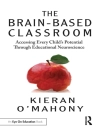Examining the popular discourse of nerves and stress, this book provides a historical account of how ordinary Britons understood, explained and coped with the pressures and strains of daily life during the twentieth century. It traces the popular, vernacular discourse of stress, illuminating not just how stress was known, but the ways in which that knowledge was produced. Taking a cultural approach, the book focuses on contemporary popular understandings, revealing continuity of ideas about work, mental health, status, gender and individual weakness, as well as the changing socio-economic contexts that enabled stress to become a ubiquitous condition of everyday life by the end of the century. With accounts from sufferers, families and colleagues it also offers insight into self-help literature, the meanings of work and changing dynamics of domestic life, delivering a complementary perspective to medical histories of stress.
Spis treści
Introduction
1 Nerves and the nervous: self-help books in the early decades of the twentieth century
2 Neurotic tendencies: workplace and suburban neurosis in the interwar period
3 ‘Just Nerves!’: civilian nerves in the Second World War
4 Th e great strain: domestic troubles in post-war Britain
5 The democratisation of stress: popular and personal discourse in the 1960s and 1970s
6 The ‘ruthless years’: burn-out and the paradigm of stress
Conclusion
Bibliography
Index
O autorze
Jill Kirby is Lecturer in History at the University of Sussex












